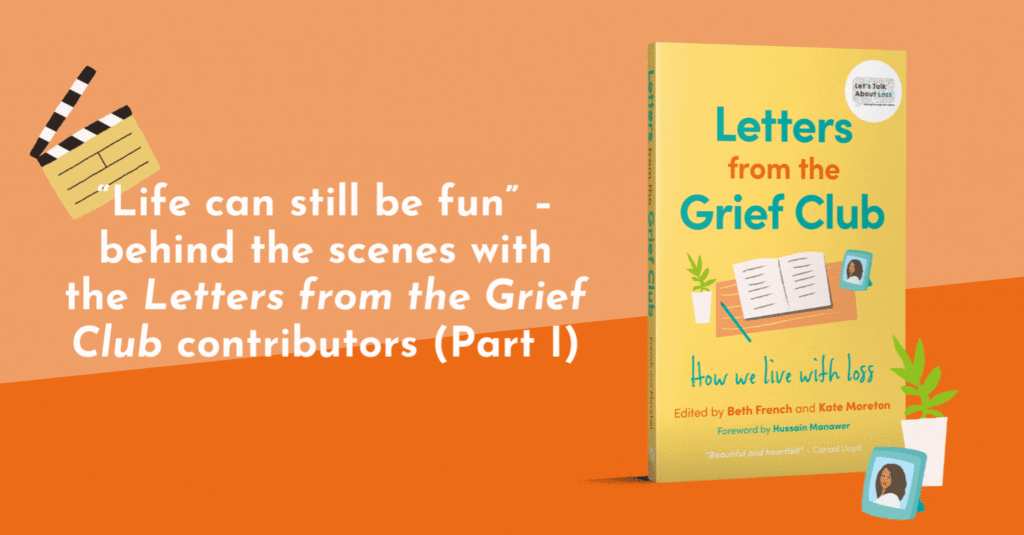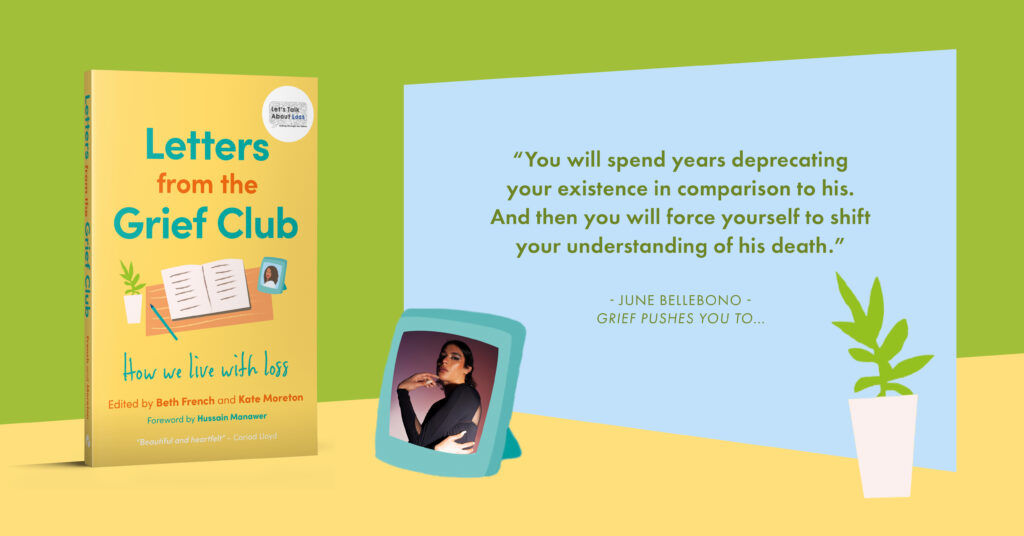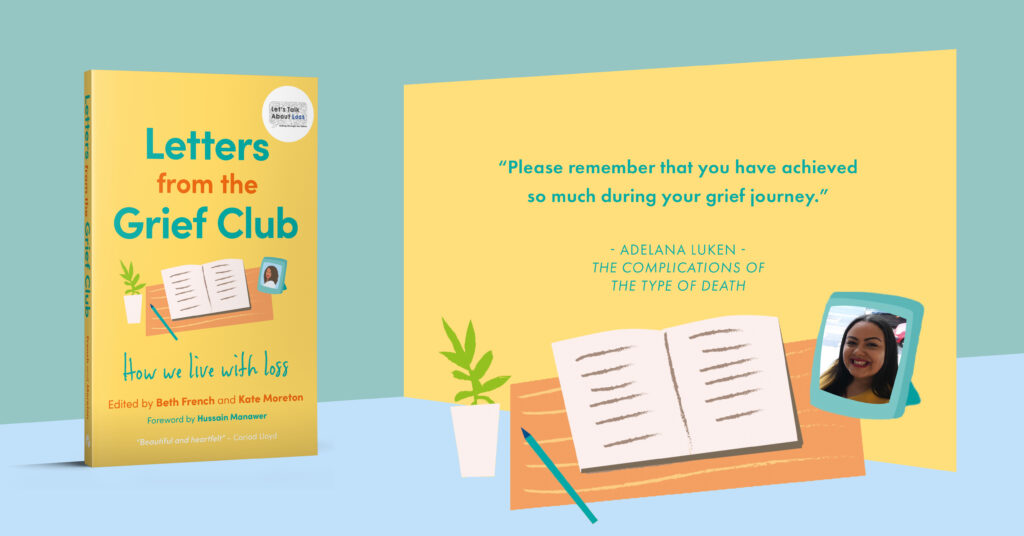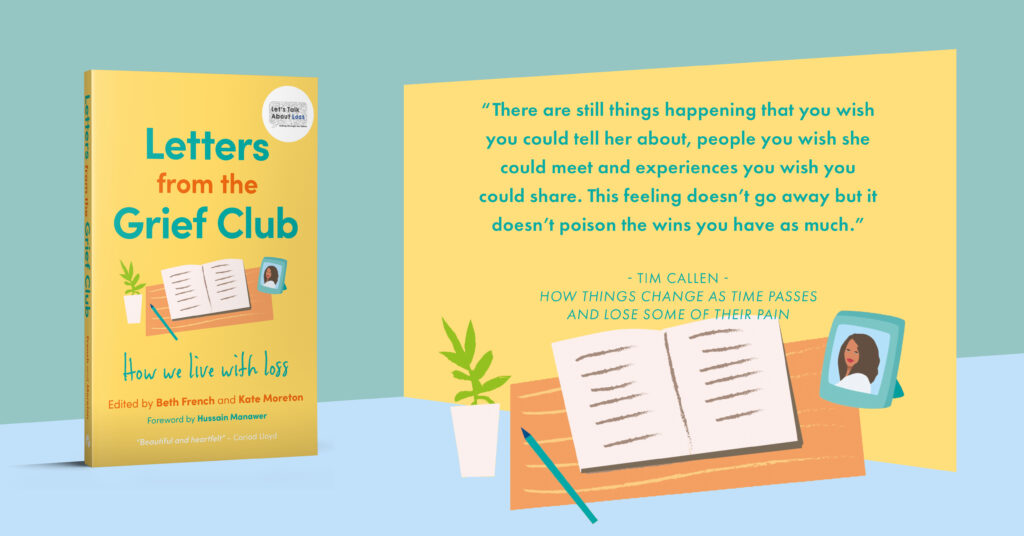
“Life can still be fun” – behind the scenes with the ‘Letters from the Grief Club’ contributors (Part I)
From the founder and trustee of the Let’s Talk About Loss charity, Letters from the Grief Club consists of over 50 heartfelt letters written by a group of young individuals all dealing with grief in their own individual way. Some have written to themselves back on their first day of grief, with the reassurance that they will get through those awful first months, whilst others have shared snippets from their grief journeys – from the experience of therapy to the power of getting creative. In this blog, we hear from three of the Letters from the Grief Club contributors on their grief stories and writing experiences.
June Bellebono
When I started writing my piece, I was unsure of the direction it was going to take. I’d written about grief before, and how catalysing losing my brother had been for my own journey of discovery. However, I was not expecting it would trigger the emotions it did. I was used to theorising grief in a way that almost separated me as a subject, but being forced to address a younger version of myself brought out an unexpected rawness.

Over the last seven years of living without my brother, I have learnt to accept that not having him, not sharing memories with him, not holding him, not being able to get to know him will forever be a source of pain, but I’ve also learnt to cherish him, his memory, and his legacy.
Adelana Luken
I have always loved writing, but my creative writing degree sucked out all my love for it. It felt like a chore rather than something I enjoyed doing in my free time. When I started writing my part for Letters in the Grief Club, it was the first time I had written since I finished my degree and since my boyfriend died.
When Henry first died, I purposely kept myself busy. I did not want to stop because I was scared if I stopped that the pain would be too much for me to bear. However, I learned that sitting with my grief, embracing it and feeling it deeply meant I was able to process it better instead of trying to avoid how I was feeling.

I knew when I started writing that I wanted to bring through my personality, my comedic and positive side. I wanted to show that even though grief is terrible, life can still be fun and exciting and there is so much to live for. I would be thrilled if even one person found comfort in my story and could relate to the problems that come with a complicated relationship and death.
Tim Callen
When my mum died when I was 14 I think I knew that my world was going to change but I wasn’t sure quite how. I think the prospect of facing that idea was far too big and certainly felt too big to talk about with other people. I got this acute sense that nobody could understand this, I’m sure people were saying well-intended things but they either felt so far from what I was feeling or filled me with a burning intensity of emotion that I did my best to avoid talking about grief. I spent the rest of school doing what I could to feel normal which mostly entailed playing football, making jokes and talking about music. At home, when I was on my own, I was more engaged with my grief and would think, and sometimes write about mum. Certainly, in the first years, it felt like a very insular process and in the moments it was more social, grief felt very threatening.
As me and my grief grew over the years (it has now been 13 and a half years) my relationship with loss changed. I have become far more reflective and have taken a more active approach in discussing grief, not to say that avoidance doesn’t still occur in some situations. But on the whole, I am interested in its role in who I am. I have recognised where grief still causes pain and also appreciated the skills and values it has helped me develop. I have even dedicated my thesis in clinical psychology to the subject of adolescent grief.

When the chance to contribute to the book occurred, the idea of writing to myself from this new position on my grief journey really interested me. A chance to reflect on changes and also consider what my younger self would have wanted to hear. I felt he would have wanted to hear the truth but also to have a tone of light-heartedness. Something to oppose the furrowed brow of sympathy people sometimes do when talking about grief. In the main, to hear from somebody in the know, not making it all up based on a movie template of what grief should look like. I felt compassionate for that 14-year-old boy, but also in a strange way, pride. I looked back at the challenges he faced and how he had developed through difficult transitions. I wanted to offer him hope, some differing perspectives on why, socially, things can be difficult, but also a confirmation that it was okay to grieve in his own way. I think the whole concept of the book supports this concept that grief is unique and multi-faceted. Having read the book I believe that those who have lost someone recently will find at least one voice that resonates with parts of their own experience. I certainly would have taken comfort in reading this book 13 years ago.
Letters from the Grief Club is now available.
Enjoy reading this piece? Want to be updated on more blog content, book releases and other news, please sign up to our mailing list here.